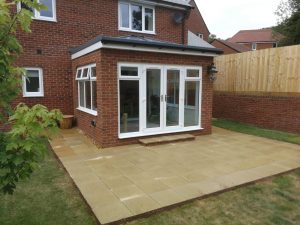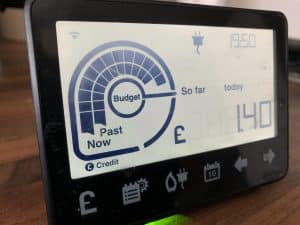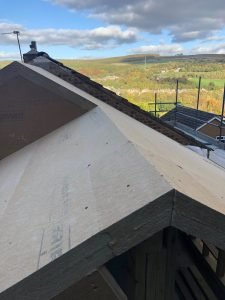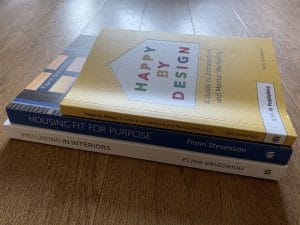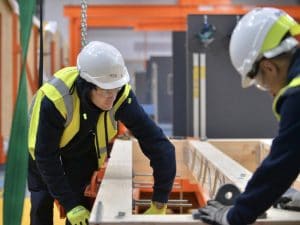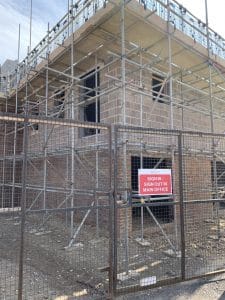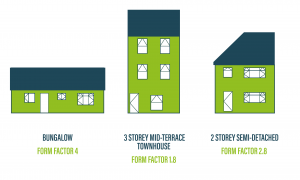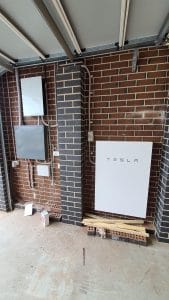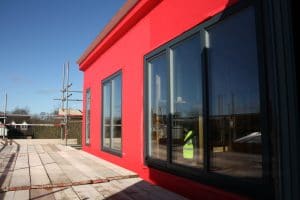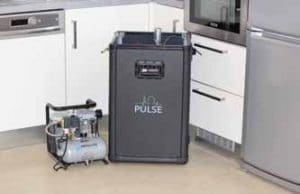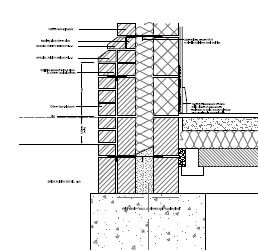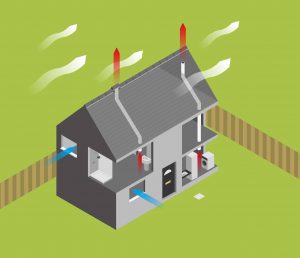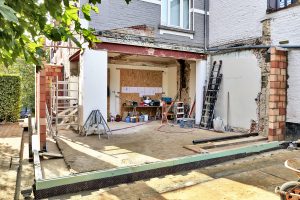Do I need a SAP calculation for my extension?
May 22, 2020
If you’re working on a new residential development or conversion, Building Regulations require you to have a SAP calculation on your property. It’s an accepted, expected part of construction and design and is your way of proving the energy and environmental performance of a build.
But, when you’re building an extension, things get a little more complicated. We’ve created a simple guide on the WHAT and WHEN of SAP calculations for extensions.Read the full article…
10 quick hacks to save energy during lockdown.
May 14, 2020
Like many of you, here at Buildpass we are spending more time than ever within the four walls of our home. This could easily lead to a spike in our energy use and, as a result, a big increase in bills.
We are by no means alone in this. With the majority of households still experiencing a degree of lockdown, the potential for a surge in home-based energy usage is huge.
Now is the time to mitigate any further damage and save energy, water and cash. Read out top ten hacks to find out how.
Read the full article…
More efficient homes mean a reduction in energy emissions and a big old cut in bills. A double win, really.
But, you can take it a step further. As a home-owner, a builder, a project manager or a designer, you can choose to utilise an eco-friendly insulation solution.
One of those solutions is wood fibre insulation boards.
Find out more in our latest blog.
Read the full article…
Buildpass is officially turning two!
May 1, 2020
They say “if you don’t like it, fix it.” And that’s exactly what I decided to do with Buildpass.
today we’re celebrating a fantastic two years of business for our sustainability and energy efficiency consultancy.
And since Buildpass is the brainchild of our self-confessed eco-geek Director, Andrew, we thought we’d give him the floor to tell you all about his journey so far and his ultimate vision for Buildpass. Have a read of our latest blog to see the full story.
Read the full article…
There’s an absolute wealth of industry specific literature out there – much of it with really unique, interesting messages and viewpoints – and we want to shine a light on it.
Because with many of us currently staying in our homes due to lockdown, this could be a valuable opportunity to find out more about how the space we live and work in impacts our mental health and wellbeing.
That’s why, this week, we’re making the most of the “quiet time” by reviewing three books all about sustainable design and wellbeing. You can read the full review through the link in our bio.Read the full article…
What is light pollution and why is it a problem?
April 17, 2020
International Dark-Sky Week runs from Sunday 19 April to Sunday 26 April 2020. The idea behind it is to show the world the beauty and power of the night sky without the effects of light pollution. In doing this, it strives to get the world taking notice of the major problems brought about by light pollution, and the simple ways in which we can all help to mitigate them.
And as a business pretty much obsessed with paving the way for a more sustainable, eco-conscious world, we’re entirely on board with it.
Read our latest blog to find out more about light pollution and what we can to do combat it.Read the full article…
Could offsite construction solve the housing crisis?
April 9, 2020
“The UK has been facing a housing crisis for some time, currently needing around 340,000 new homes per year just to meet demand. But simply building more homes isn’t going to single handedly solve it. New homes need to be sustainable, affordable and fit for purpose, and be built quickly – this is where offsite construction could have a huge role to play.”
Next up in the Buildpass “Guest Post Series”, we’re speaking to Ideal Modular Homes about the role of offsite construction in solving the housing crisis
Read the full article…
Make the most of your time off-site by reviewing your construction methods and making your development as ‘green’ as it can possibly be. As much as we are determined not to add to the deafening noise around our current pandemic, there’s no avoiding the fact that COVID-19 is having – and will continue to haveRead the full article…
How to calculate form heat loss factor.
March 27, 2020
As an industry, we are continuously searching for ways to make buildings as energy efficient as possible. Why? To boost the value of a development, to minimise energy costs and, ultimately, to pave the way for a more sustainable, environmentally conscious society.
One way to measure and, as a result, tackle the energy efficiency of a build is looking at its form heat loss factor.
Read our latest blog to find out more about calculating building form factor and why it matters.
Read the full article…
Is district heating key to UK decarbonisation targets?
March 19, 2020
In order to reach our zero carbon target by 2050,
we need a massive change in how we heat our buildings in the UK. There is a great debate in the heating industry about the best way forward; one option attracting a lot of interest is district heating.Read the full article…
What is embodied carbon and how should I approach it?
March 12, 2020
When it comes to building a more sustainable community, the time has truly come for everyone to play their part. The latest topic on the agenda? Embodied carbon. The industry is working hard to deliver more energy efficient buildings; there’s no denying it. And it really is music to our ears. We’ve already seen aRead the full article…
5 key areas to consider for air tightness.
March 5, 2020
Air tightness is a core factor when it comes to producing an energy efficient design strategy; it’s a topic we’ve covered in varied ways. We thought we’d drill it down further still by looking at those key areas that can be addressed to boost your airtight score and, as a result, play an important role in the journey towards low energy sustainable housing.
Take a look at our latest blog to discover our 5 key areas for air tightness.
Read the full article…
The new battery storage standard charging into 2020.
February 26, 2020
At Buildpass, keeping up to date with industry trends, announcements and events is a key part of our business. We’re part of an industry that is constantly evolving… and rightly so. Energy efficiency tools and systems are on the rise, making it an exciting time not only for the sector but for the entire world.
One of the latest updates? The new battery storage scheme from MCS. Read our latest blog to find out how the new standard for the installation of battery energy storage systems could impact you or your business.Read the full article…
What are the benefits of thermal mass?
February 18, 2020
Here at Buildpass we believe that, together, we can build a more sustainable and environmentally aware society.
Today we’re exploring the concept of thermal mass; a simple way to have a huge impact on the energy storage of a property. Alongside keeping your home at a steady, comfortable temperature all year round, thermal mass materials can save you major costs in your energy bills and will slice your CO2 emissions.
Find out more about the benefits of thermal mass and some handy tips in our latest blog
Read the full article…
Why contractors are key to airtightness.
February 12, 2020
As the standards for buildings’ thermal performance have increased over the years, an understanding of the amount of energy lost through air leakage has grown. It’s become a big talking point, and one that is constantly adapting and developing.
We spoke to the team at the A. Proctor Group about the role contractors play in airtightness for our latest article in the “Guest Post Series”. We hope you enjoy!
Read the full article…
Is Pulse Testing set to become the new Air Leakage Testing?
February 6, 2020
Air Leakage Testing measures the total air lost due to gaps and leaps in the fabric of a building. But, with upcoming changes to building regulations, could we see Pulse Testing take the place of the current air leakage test procedure?
Find out more about the two methods and our predictions for the year ahead in our latest blog.
Read the full article…
6 energy trends to look out for in 2020.
January 29, 2020
The world of energy and sustainability is constantly evolving, and 2020 looks set to be an exciting time of growth and discovery when it comes to building a more environmental society. This period will bring with it some major changes, and so we thought it was the opportune time to look ahead at 2020 and layout a few of our predictions.
Read our top 6 predictions for 2020 in our latest blog.Read the full article…
What is thermal bridging and how can I avoid it?
January 20, 2020
Thermal bridging is a term frequently used in the building and development sector; but what does it actually mean for you and your property? Thermal bridging is a term that refers to areas of a property or development where heat flow is different, resulting in a path of least resistance when it comes to heatRead the full article…
Opting for solar panels on your property – particularly your roof – is one of the best things you can do for the climate, your energy bills and your energy efficiency rating. But which types of roof are suitable for solar panels?
We’re excited to launch the first article of our ‘Guest Post Series’ where we spoke to George from Energy Spirit. Here tells us about the roofs that are (and aren’t) suitable for solar panels.Read the full article…
What is U Value and why does it matter?
January 10, 2020
When it comes to energy efficiency, the “buzz words” and technical jargon are endless. And when it isn’t your area of expertise, it can sometimes feel easier to turn a blind eye to them entirely.
We’re debunking the confusion that lies around sustainability and building compliance. We want to show you how simple it is to improve your energy use, save money and, ultimately, do your part for the planet.
Starting with U Value – your thermal performance rating. Head over to our blog to find out more about what this is and why it matters.Read the full article…
Celebrating an exciting year for Buildpass!
December 18, 2019
With the decade drawing to a close, it seems fitting to take a moment and look back at 2019 and everything Buildpass has achieved.
We have transformed in ways we could never have imagined. What started as a passion project has now become a fully fledged, evolving business.
And so in-keeping with the festive spirit, we wanted to pay homage to a few of our favourite achievements from the past 12 months and raise a glass to a year well spent. Take a look at our blog and join us in our celebration!
Read the full article…
The easy guide to passive stack ventilation.
December 14, 2019
When it comes to sourcing your home energy in the most efficient, cost effective and natural way, the options can feel never ending. Deciding on the system that best suits you holds many layers; but we’re here to unpick some of them.
One of these options is passive stack ventilation (PSV): a totally natural ventilation system. Visit our blog to read our easy guide to PSV and find out whether it’s the energy solution for you!
Read the full article…
How to improve energy efficiency in historic buildings.
December 5, 2019
There are so many reasons to improve the energy efficiency of a building. Aside from the drop in fuel consumption and costs and increase in comfort, it takes us a step closer to a more sustainable environment. Historic buildings shouldn’t be exempt from that. It’s a well known fact that historic buildings are far fromRead the full article…
The new Tesla Energy Plan set to revolutionise the market.
November 28, 2019
Octopus are one of the few suppliers in the UK of 100% renewable energy. And now they’ve teamed up with Tesla to start a renewable home revolution: the Tesla Energy Plan.
The idea is that energy usage will become automated, lowering your bills and minimising your carbon footprint. It balances supply and demand, optimising your energy usage costs and transitioning homes to sustainable power.
We’re looking forward to seeing the response from other energy suppliers in the coming months; could this be the start of a new mindset in energy efficiency?
Read the full article…
Behind the scenes with Buildpass… The Case Study Series.
November 21, 2019
We pride ourselves on our highly personalised service, finding individual solutions for every single one of our clients. This means we are always passionate about helping those who may have been steered in the wrong direction.
Take a look at the recent way we supported a client who had been fed contradictory advice on the design of their roof.Read the full article…



